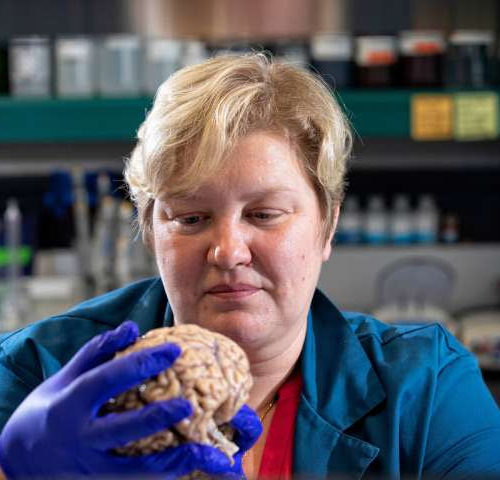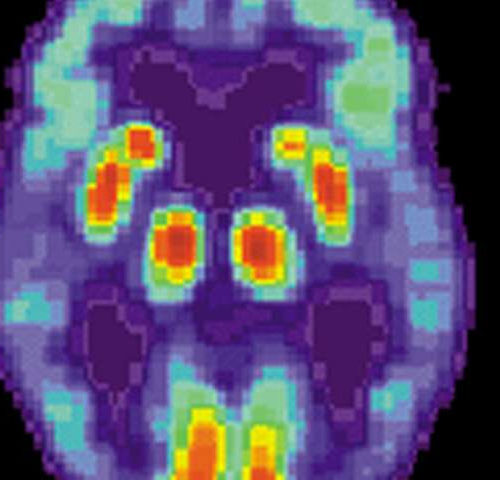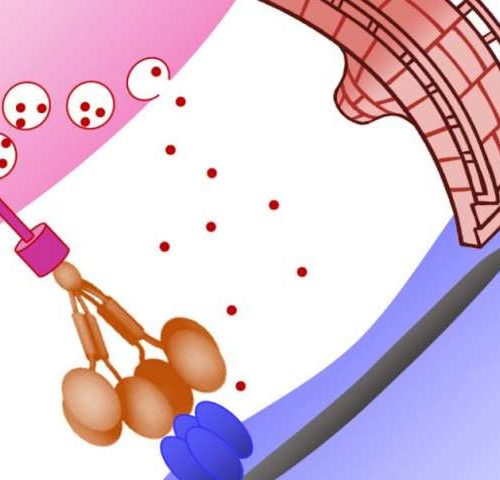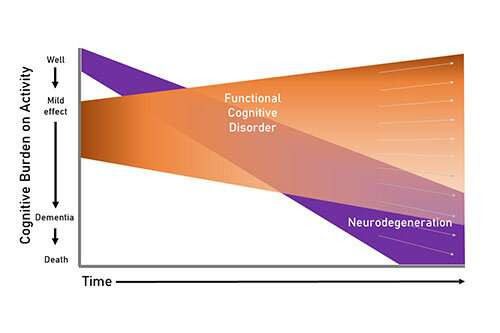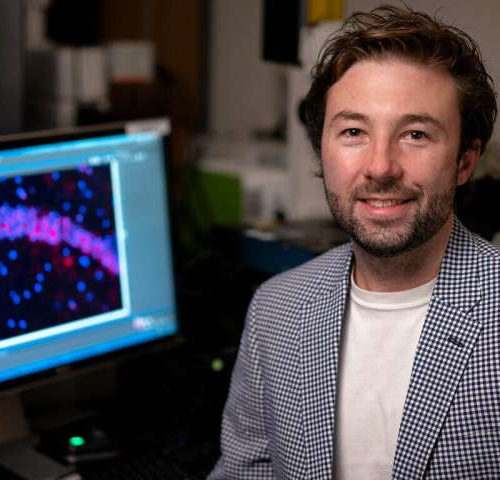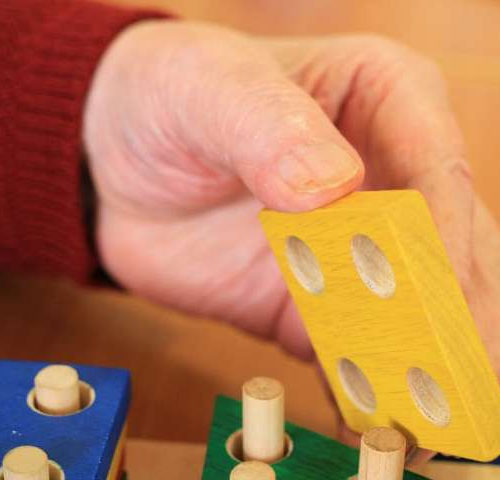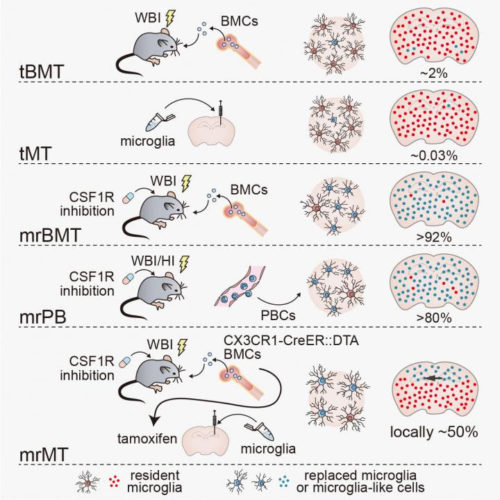by University of Kentucky Research looking at a possible new therapeutic approach for Alzheimer’s disease was recently published in the Journal of Neuroinflammation. The paper out of the University of Kentucky’s Sanders-Brown Center on Aging (SBCoA) is titled “Therapeutic Trem2 activation ameliorates amyloid-beta deposition and improves cognition in the 5XFAD model of amyloid deposition”. The...
Tag: <span>Alzheimer’s disease</span>
A.I. tool promises faster, more accurate Alzheimer’s diagnosis
by Stevens Institute of Technology By detecting subtle differences in the way that Alzheimer’s sufferers use language, researchers at Stevens Institute of Technology have developed an A.I. algorithm that promises to accurately diagnose Alzheimer’s without the need for expensive scans or in-person testing. The software not only can diagnose Alzheimer’s, at negligible cost, with more...
A tailor-made molecule that ties nerve connections
by German Center for Neurodegenerative Diseases CPTX (orange) combines functional domains present in natural synaptic organizing proteins in a unique way. The compound was designed to act as a universal bridge builder for excitatory connections between nerve cells. Credit: DZNE / Alexander Dityatev Researchers from the German Center for Neurodegenerative Diseases (DZNE), UK and Japan...
Female chromosomes offer resilience to Alzheimer’s
by University of California, San Francisco Women with Alzheimer’s live longer than men with the disease, and scientists at UC San Francisco now have evidence from research in both humans and mice that this is because they have genetic protection from the ravages of the disease. By virtue of having a second X chromosome, women...
New diagnostic criteria shine light on early dementia mimics
by University of Bristol UK academics and clinicians have collaborated to develop a diagnostic definition of the widely recognised but poorly understood condition, Functional Cognitive Disorder (FCD). Credit: University of Bristol Experts estimate up to one third of people attending specialist memory clinics could have a condition that is commonly mistaken for early dementia. In...
Negative side effects of opioids could be coming from users’ own immune systems
by American Chemical Society larger the dose of opioid, the larger the antibody response. “This was surprising,” Kyzer says. “We saw antibody responses in people who were taking large doses for as little as 6 months.” The scientists are now working on isolating the key opioid antigenic intermediates in the body that prompt the generation...
Targeting the LANDO pathway holds a potential clue to treating Alzheimer’s disease
by St. Jude Children’s Research Hospital Scientists at St. Jude Children’s Research Hospital are advancing understanding of a potential Alzheimer’s disease treatment. The work focuses on LC3-associated endocytosis (LANDO) and its role in neuroinflammation. The results appeared as an advance online publication today in Science Advances. The researchers previously discovered the LANDO pathway in microglial...
Potential link for Alzheimer’s disease and common brain disease that mimics its symptoms
Conducting genetic screening in hundreds of autopsied brain samples, investigators identified shared molecular mechanisms in Alzheimer’s disease and LATE, a common brain disorder BRIGHAM AND WOMEN’S HOSPITAL Alzheimer’s disease is one of the most common causes of dementia, and while most people might know someone who is affected by it, the genetic factors behind the...
How COVID-19 might increase risk of memory loss and cognitive decline
by Natalie C. Tronson, The Conversation Of all frightening ways that the SARS-COV-2 virus affects the body, one of the more insidious is the effect of COVID-19 on the brain. It is now clear that many patients suffering from COVID-19 exhibit neurological symptoms, from loss of smell, to delirium, to an increased risk of stroke....
Scientists replace malfunctioning ‘vacuum cleaner’ cells linked to neurological disorders
FUDAN UNIVERSITY SCIENTISTS FROM FUDAN UNIVERSITY DEVELOPED NOVEL STRATEGIES ACHIEVING ALLOGENEIC MICROGLIA REPLACEMENT IN THE CENTRAL NERVOUS SYSTEM. view more CREDIT: IMAGE CREDIT: XU ET AL, 2020, CELL REPORTS Researchers at Fudan University in Shanghai, China have developed three different techniques that successfully replace almost all malfunctioning microglia – each technique with its own advantage...

